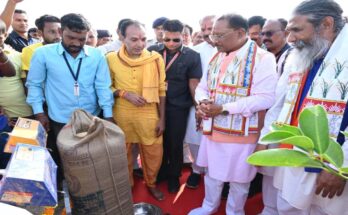- Nine employees testing positive for virus at Oppo’s facility might be a harbinger of what awaits Indian companies as business activities have been allowed to resume
However, companies are doing their best with innovative methods to keep the virus at bay at workplaces
New Delhi19 May 2020: In the wake of workers at smartphone maker Oppo’s facility in Greater Noida testing positive for Covid-19 this week, Indian corporates are waking up to a new deadly reality – dealing with the risk of infections as they restart businesses amid the eased lockdown.
Oppo’s factory production is off limits and so is a construction facility for a Vivo factory, after nine and two workers respectively tested covid positive, which serves as a grim reminder that such an outcome might await any company, industry executives said.
While the government has issued a list of standard operating procedures for employees coming to work, many companies are taking steps of their own to mitigate the chances of such a disaster, they said.
Noida-based Super Plastronics Private Limited (SPPL), which owns the brand license for Thomson TVs, has been checking employees’ temperature thrice a day, instead of the recommended twice a day, to ensure any aberration can be caught quickly.
It has also assured factory workers that their salaries won’t be cut if they have to go under quarantine, and the cost of testing will be borne by the company.
Leading automobile manufacturing companies have taken precautionary measures like whole body sanitization and mandatory check of body temperature during the last fourteen days. Most of them have also made isolation wards in factories for employees who show symptoms of infection at the workplace.
Notwithstanding the safety precautions taken by the companies it is still an uphill task to completely eliminate the risk of a sick person getting into the factory premises. Some companies are trying to preempt the chances of infections by screening employees even before they enter the office.
According to the owner of an automotive component manufacturing firm, some contractual employees–who are usually paid by the hour or by the number of days they have worked in a month –take Paracetamol tablets before starting work to avoid detection of fever as they fear that anyone with a touch of flu won’t be allowed.
“No one is talking about these issues, which are proving to be a big impediment for owners of the companies. Now, if an employee takes such tablets to ensure the daily pay, his or her body temperature will be normal and will increase only after three or four hours. By the time this person will get into the factory premises. If a single person is found positive then we will have to again shut the factory which will be a drain on our finances,” the the person said, requesting anonymity.
Venkat Neelakantan, VP and Head – Corporate Real Estate Services, India and APAC, Capgemini, said the company has created a self declaration app called ‘Namaste Capgemini’. This app helps the company ensure “only a pre-defined number of employees are allowed access to office premises”.
It authorizes employees to return to office after taking into account parameters like where they’re travelling from, recent travel history, physical health and more.
“If the app authorizes return to office, the employee will need to scan a QR code in the app at the entry of the office premises and it will generate a mandatory digital pass valid for the day. Every employee will have to login to the app and declare their good health for every day of their commute to office,” said Neelakantan.
Social distancing is an important part of the efforts made by organisations. Companies like Lava, Capgemini and more said they have made arrangements for pre-packed food in order to minimize the use of common areas like canteens.
“We have already redesigned various aspects of our office to facilitate distancing. Many work stations have been marked as “not for use” so that team members sit apart. The meeting rooms have been marked down to less number of people (pic),” said Rajnish Wahi, Senior Vice President, Policy & Communications, Snapdeal.




